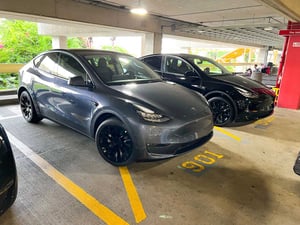
Understanding the Federal “Previously Owned Clean Vehicle” Tax Credit
Buying EVs for Used Inventory?
Effective Jan. 1, 2023, a federal previously-owned clean vehicle tax credit (Used EV Credit) potentially applies to used battery electric (BEV), plug-in hybrid electric (PHEV), or fuel cell electric (FCEV) vehicles sold by licensed dealers between 2023 and 2032. The maximum Used EV Credit is the lesser of $4,000 or 30% of the sales price. But, as detailed below, many used EV sales will be ineligible for a Used EV Credit. To the extent possible, before buying a used EV, determine whether a Used Vehicle Credit may apply when the EV is later sold by the dealership.

PARTNER SPOTLIGHT
Dealer Management System, Computer Technology, Media/Advertising, Automotive Auction, F & I/Aftermarket Products, Automotive Technology Training & Compliance
 A NHADA Gold PARTNER
A NHADA Gold PARTNERComputer Technology, Automotive Shop Equipment, Environmental Services
 A NHADA Platinum PARTNER
A NHADA Platinum PARTNERF & I/Aftermarket Products, Automotive Technology Training & Compliance, Environmental Services
.png?width=150&name=corp_logo_horz_on_light_with_trademark_symbol_1200w%20(002).png) A NHADA Diamond PARTNER
A NHADA Diamond PARTNERF & I/Aftermarket Products, Financial Services, Automotive Technology Training & Compliance
 A NHADA Diamond PARTNER
A NHADA Diamond PARTNER- Have been manufactured by a qualified OEM (virtually all were);
- Be under 14,000 lbs GVWR (if not sure, check the certification label on the driver-side door frame or B-pillar);
- Be propelled by a battery of at least 7 kWh (a concern only for PHEVs) or be a FCEV; and
- Be two model years old or older than the year of sale (i.e, for sales in 2023, MY 2021 or older).
Bottom Line: The above requirements should be easy to determine prior to buying a used EV.
II. Also, to be eligible for a Used EV Credit, a used EV may not have been sold after 8/16/22 to a Qualified Buyer who was not the original owner. A Qualified Buyer is someone who:
- Is an individual (not a business, etc.) who cannot be deducted on someone else’s tax return;
- Purchased the vehicle for use in the U.S. and not for resale; and
- Has not claimed a Used EV Credit for a purchase made within the last 3 years.
Bottom Line: If a used EV is sold after 8/16/22 to a Qualified Buyer who was not the first owner, the Used EV Credit is no longer available for that EV. However, it may be difficult to determine with certainty whether a prior used EV owner was a Qualified Buyer. Yes, a vehicle history report should show if a used EV was sold after 8/16/22 to an individual who took the title in the United States in his or her name. But, determining whether that buyer was deductible on someone else’s taxes, or previously claimed a Used EV Credit, will be difficult at best. Only if a used EV was not sold after 8/16/22 or was sold since then but only to non-individuals (e.g., businesses), will it be reasonable to assume that it was not previously sold to a Qualified Buyer and may qualify for a Used EV Credit.
III. When a used EV is sold at retail, four additional requirements must be met for a Used EV Credit to apply. Specifically:
- The purchaser must be a Qualified Buyer (see above) that did not buy the EV new;
- The purchaser must have a Modified Adjusted Gross Income below the applicable cap; [1]
- The sale must be by a licensed dealer for a price that does not exceed $25,000; and
- The selling dealer must provide the eligible purchaser with a copy of the required report form (under Section 25E).
[1] $150,000 for married filing jointly or a surviving spouse, $112,500 for heads of households, $75,000 for all other tax filers
Bottom Line: Even if one or more of the above four requirements cannot be met, customers often will be willing to purchase a used EV without a federal Used EV Credit.
Questions may be directed to regulatoryaffairs@nada.org.


















.png?width=150&name=Ally_Final%20Logos%20and%20Pairings_11.14.2018-01%20(2).png)


-2.png?width=150&name=Wipfli%20Logo%20Blue%20RGB%20(1)-2.png)


.jpg?width=150&name=NHADA_Partner_FTR_Img_NHADA_Insurance%20(1).jpg)


.jpg?width=150&name=NHADA_Partner_FTR_Img_JMA(1).jpg)





